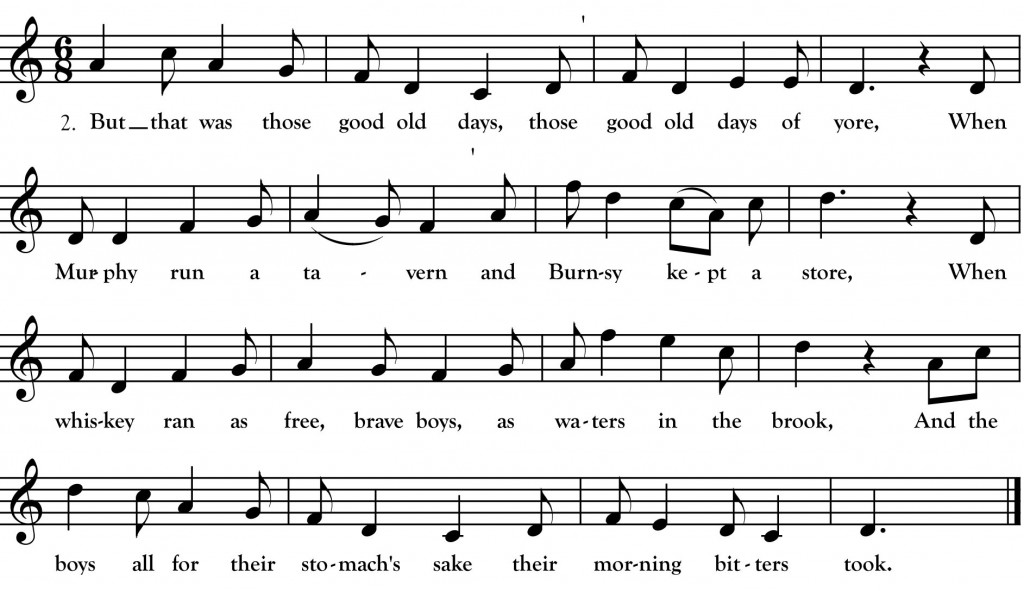The Farmer’s Boy
Oh the sun it sank behind a hill across the dreary moor,
Poor and lame there came a boy up to a farmer’s door,
Saying, “Please, will you tell me a man about here that would me employ,
To plough, to sow, to reap and to mow, to be a farmer’s boy?”
“My father’s dead, my mother lives with her five children small,
And what is the worst for mother dear, I’m the eldest of them all,
Although I am small, I fear no work if you’ll only me employ,
To plough, to sow, to reap, and to mow, to be a farmer’s boy.”
“Oh well,” says the farmer, “we’ll try the lad, no longer have him seek,”
“Yes, dear Papa,” his daughter cried, as the tears rolled down her cheek,
“For a man that can work, it’s hard for him to want, and to wander for employ,
Don’t send him away, but let him stay, and be your laboring boy.”
Well the years went by, the boy grew up and the good old farmer died,
He willed to the lad the farm that he had, and his daughter for a bride,
Now the lad that was once; he’s a farmer now. He often thinks with joy,
On the happy, happy day he came that way, to be a farmer’s boy.
—————–
This month’s song comes from Edith Fowke’s 1957 recording of Ottawa Valley singer Oliver John (O.J.) Abbott (1872-1962). Abbott was born in Enfield, England and came to Ontario as a 12-year-old with his brother but without their parents. As a young man in the Ottawa area, he boarded with and worked for two Irish families, the Whalens and the O’Malleys. He learned many songs from Mrs. Whalen and Mrs. O’Malley and more from his winter work in lumber camps. After being “discovered” by Fowke in his mid 80s, Abbott went on to appear alongside Pete Seeger at multiple folk festivals as a representative of the rich tradition of “woods” singing found in the Ottawa Valley region (here he is being interviewed by Ewan MacColl). “The Farmer’s Boy” must have resonated strongly with Abbott as someone who, himself, was taken as a “farmer’s boy” as a vulnerable young man.
Versions of this song were collected all over the US including in Wisconsin where it was sung by Crandon singer Warde Ford (I substituted Ford’s opening line for Abbott’s above). It has also been found throughout England where it likely originated as a mid-19th century broadside. The song must also be known in Ireland for, after singing it once in Chicago, Sligo-born flute legend Kevin Henry remarked “Where did you get ‘The Farmer’s Boy?’ I haven’t heard that since I was a boy!”


